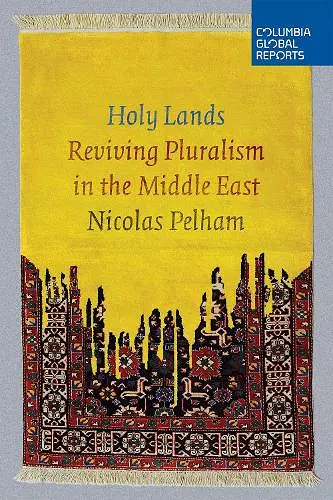Holy Lands
Reviving Pluralism in the Middle East
Format:Paperback
Publisher:Columbia Global Reports
Published:28th Apr '16
Currently unavailable, and unfortunately no date known when it will be back

The news from the Middle East these days is bad. Whatever hopes people may have for the region are being dashed over and over, in country after country. Nicolas Pelham, a veteran correspondent for The Economist, has seen much of the tragedy first hand, but in Holy Lands he presents a strikingly original and startlingly optimistic argument. The Middle East was notably more tolerant than Western Europe during the nineteenth century, because the Ottoman Empire permitted a high degree of religious pluralism and self-determination within its vast borders. European powers broke up the empire and tried to turn it into a collection of secular nation-states; it was a spectacular failure. Rulers turned religion into a force for nationalism and the result has been ever increasing sectarian violence. The solution, Pelham argues, is to accept the Middle East for the deeply religious region it is, and try to revive its tradition of pluralism. Holy Lands is a work of vivid reportage--from Turkey and Iraq, Israel and Palestine, Abu Dhabi and Dubai, Bahrain and Jordan--that is animated by a big idea. It makes a region that is all too familiar from news reports feel fresh.
"It is rare to come across a book on the region that charts a positive path for the future; rarer still to find one that advocates religious leadership and pragmatic communalism as the means for reaching peace...[Pelham] makes a powerful case that a regional alliance of overlapping millets, not connected with territorial boundaries, offers a better vision for restoring stability to the Middle East than the current agendas for conflict management." --Jonathan Steele, The Guaridan "A fine collection of essays -- a rare combination of on-the-ground reportage and profound historical knowledge." --Ian Black, The Guardian "Can religion serve once again in the modern Middle East as the foundation for a meaningful pluralism as it did in the premodern Middle East? That is the question raised by this important book." --Jonathan P. Berkey, The American Interest "The reportage is well-grounded in textured life histories, interviews, and relevant historical narratives and statistics. Pelham offers impressively nuanced interpretations of entangled political rivalries and the hazy religious boundaries that crisscross the Middle East. Readers will find his investigation of the region's intolerance and aspirations for peace refreshing, particularly in the context of increasingly pessimistic headlines and political rhetoric." --Publishers Weekly "A sound, accessible argument for why returning to the mixed-faith communities living among each other in the Ottoman model might just save the Middle East. ... Pelham traces the current crisis of violent, xenophobic sectarianism in the region to the series of forced population transfers and displacements carried out through the 20th century, most critically from the fall of the ethnically diverse Ottoman Empire to the creation of Israel and Pakistan. ... However, Pelham does not see only doom but rather a resurgence of pluralism as a natural, human response given the chance for peaceable community. A lively, succinct, nonpolemical study that will offer much thought for discussion." --starred review, Kirkus Reviews
ISBN: 9780990976349
Dimensions: unknown
Weight: 198g
174 pages